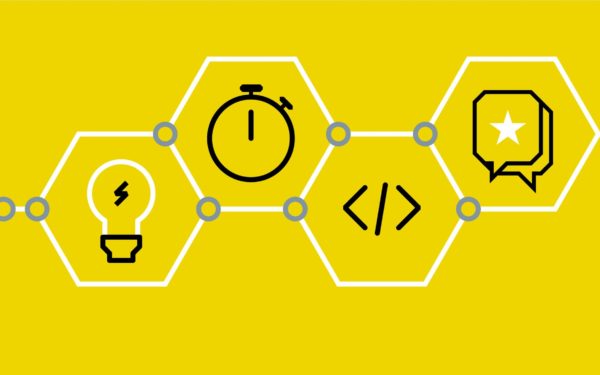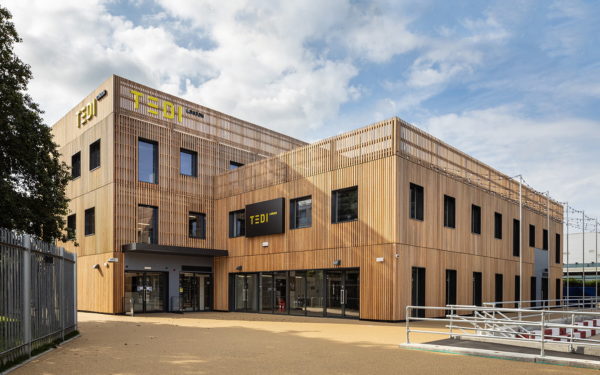
BEng (Hons)
Engineering with Artificial Intelligence
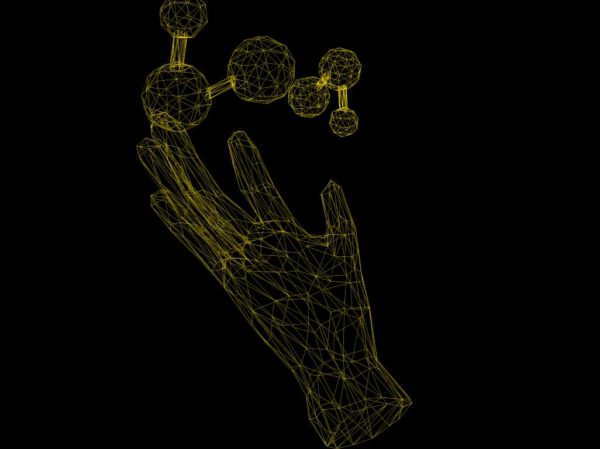
Don’t compete with AI, learn to master it.
Engineering with Artificial Intelligence integrates core engineering fundamentals with the smart use of AI tools. You’ll master the principles of engineering, systems, and sustainability- then harness machine learning, data analysis, and software development to solve problems faster, smarter, and more sustainably. This isn’t about developing AI algorithms - it's about using AI to supercharge your engineering solutions.
Overview
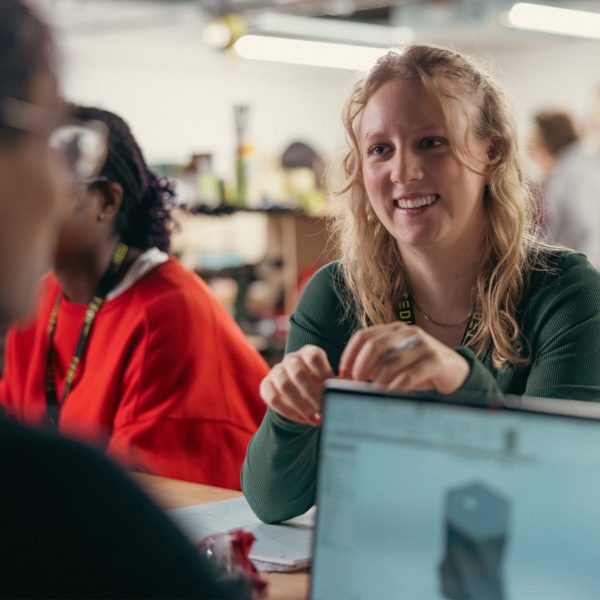
This is where engineering gets real. From day one, you’ll jump into hands-on challenges that feel like actual industry projects – not classroom exercises.
Designed for those interested in the intersection of data science, computing, and engineering, aligning market analysis and government/industrial priorities. You’ll learn a mix of core engineering skills with specialised AI topics such as machine learning, big data analytics and applied AI.
With a strong emphasis on sustainability and social responsibility, you’ll be ready to engineer solutions that address global challenges, acting as trusted agents of public good.
Graduates will benefit from TEDI-London’s project-based learning, collaborating with industry partners to solve real-world problems. With embedded digital and data fluency, our degree aligns with Engineers 2030 principles, ensuring you graduate ready to lead in a rapidly evolving world.
Engineers make a difference to how our world works, and have a profound impact on global challenges such as climate change. A sustainable engineer could use AI to optimise energy consumption, design climate-resilient infrastructure, or improve waste management systems through predictive analytics.
Course content
You’ll gain a forward-looking degree that aligns with the principles of Engineers 2030, preparing you to be socially responsible and inclusive engineers.
In your first year you’ll build a solid foundation in core engineering principles. As you learn more about AI you’ll be able to apply this learning to analyse engineering problems from a fresh technological perspective.
TEDI-London’s practical, project-based learning is at the core of the programme’s design, with each module developed through an industry-focused, project-based mindset. This approach ensures that you are not only learning theoretical concepts but also applying them in real-world scenarios.
You’ll start your journey as a student engineer learning professional skills that are essential to becoming an effective Engineer.
-
Get ready to take control (literally) as you explore the world of smart systems. Learn how sensors, actuators, and control systems work together to bring machines and devices to life. Analyse how machines sense, react, and make decisions. Design and simulate control systems, the kind that keep robots balanced, cars on course, and industrial systems running smoothly.
Using industry software such as MATLAB/Simulink and microcontroller platform (e.g. Arduino), you’ll build simulations, analyse system responses, and design control strategies. Through structured coding exercises and practical workshops, you’ll get comfortable working with feedback systems, transfer functions, and system stability.
By the end, you’ll be able to model dynamic systems, design and test controllers, and understand the role of sensors and actuators in smart, automated solutions. It’s a practical, project-based experience built around real tools and real challenges.
-
You’ll start by building up your fundamental skills of dynamics, and develop your proficiency in modelling and simulation, along with your programming skills. No need to be an expert - we’ll help you get comfortable using programming tools like MATLAB to create smart, effective solutions. Exploring how motion, forces, and energy interact in physical systems, and how to simulate all of that with code.
You’ll work in a team to take on a real-life engineering scenario. Together, you’ll design, build, and present a working simulation, explaining your approach and showing off the code behind it.
By the end, you’ll be able to think like an engineer, build digital models of physical systems, and make decisions based on real life data. You won’t just understand the theory, you’ll put it into action. It’s hands-on, fast-moving, and focused on the kind of skills you’ll use in your future career.
-
You’ll be solving problems, designing products, and making big decisions as part of a team.
You’ll dig into the fundamentals of solid mechanics, materials science, and manufacturing but you won’t just study them. You’ll use them. You’ll choose materials, model your design with Computer Aided Design (CAD) software, run stress tests, and figure out how to make it - all while thinking about quality, cost, flexibility, safety, ethics, and sustainability.
Along the way, you’ll build serious skills in CAD, stress analysis, and design thinking. Get better at presenting ideas, working with others, and backing up your decisions with solid reasoning. Expect to be challenged, to inspire others, supported, and maybe even surprised by what you can create, break or make.
It’s fast-paced, practical, and packed with the kind of experience that makes you stand out. This is engineering the way it should be, hands-on, real-world, and all about bringing your ideas to life.
-
Undertaking a design challenge, you’ll demonstrate your leadership and impact in engineering. Working on a real-life global challenge, underpinned by the UN Sustainability Goals, you’ll cover environmental, ethical, commercial, social, governance and cultural aspects of engineering.
Reflecting on your strengths and contributions, you’ll develop your teamwork, research, communication and problem-solving skills. These key skills are important for developing your professionalism as an engineer.
In the second year of study your focus will shift from engineering fundamentals to AI principles and their applications. Explore how AI transforms engineering sectors, and applying knowledge to projects aligned with real-world challenges. You’ll continue to build on the engineering fundamentals and professional skills developed in the first year of study.
-
If you're building the future, you need to know how to protect it. You’ll explore cyber incidents and threats, digital defences, and secure system design — all through the lens of modern engineering and AI.
You’ll learn how attackers think, what makes systems vulnerable, and how to build security in from the basics. Using professional tools, you’ll investigate real-world threats and secure AI-integrated systems.
Through hands-on exercises, simulations, and projects, you’ll analyse attacks and create systems that can stand up to them. Alongside the technical work, you’ll tackle the ethical and legal challenges that come with protecting data and people.
It’s about more than just code - it’s about making smart systems safe for the real world.
-
Understand how engineering systems communicate is crucial to unleashing the power of AI. You’ll dive into the essentials of networking: protocols, architecture, data transmission, and wireless systems.
You’ll build and test communication setups that support smart technologies like sensor networks and automated systems. Using appropriate tools, you’ll simulate networks, trace data flow, and troubleshoot real-world issues.
You’ll also examine how to secure, scale, and optimise these systems, while tackling the ethical and legal challenges of connected technologies.
This is about building the invisible systems that keep intelligent technologies running and making sure they run right.
-
Ready to turn messy data into smart decisions? Here, you’ll take on the role of a data detective diving into real industrial data to uncover insights, spot patterns, and build intelligent tools that work.
You’ll get to grips with cleaning and shaping raw data so it tells a clear visual story. Then you’ll explore machine learning in action — training models, testing outcomes, and figuring out how systems can learn and improve. It’s all about building practical skills through hands-on tasks and real-world case studies.
You'll explore the full spectrum of machine learning, from visualising complex data with tools like heatmaps and correlation plots, to training intelligent algorithms that learn from data, recognise patterns, and predict future behaviour with real-world impact. And it’s not just about the tech — you’ll also tackle the big questions around ethics, sustainability, bias, and data privacy. Just because a system can make an informed decision, doesn’t mean it should.
By the end, you’ll be able to take an industrial dataset, turn it into a story, and pitch your findings with clarity and confidence. You'll also learn from the past using real examples of where AI failed - analysing what went wrong, and how it could've been avoided.
It’s fast-paced, relevant, and right at the intersection of data, technology, and impact.
-
Ecological Structures gives you an opportunity to work like a professional engineer, analysing, testing, and pitching solutions to a real-world challenge. You’ll take on the role of a consultancy team, tackling a project brief that pulls together structural analysis, thermodynamics, and environmental impact. Think things like Electric Vehicle (EV) chassis design or modular building systems - the technology that shapes tomorrow’s world.
You’ll get hands-on with advanced tools like finite element analysis (FEA) to test how your structure performs under stress and explore how heat flows through your design. Then you’ll dig deep into the sustainability side, using Life Cycle Assessment to weigh up the impact of your materials and choices from start to finish.
This isn’t just about getting the maths right — though you’ll do that too. It’s about thinking smart, solving complex problems, and finding ways to make your design adaptable, efficient, effective, and environmentally responsible. Every week you’ll build your skills through focused sessions and use them straight away on your project. It’s collaborative, technical, and built to give you the experience that matters.
-
This is where your ideas meet action. You’ll immerse yourself in a team project with a real-world brief designing a product, system, or process that solves a genuine challenge. It’s not just about what you build it’s how you plan, research, test, and deliver something that works.
You’ll dig into how research fuels innovation. That means learning how to ask the right questions, gather evidence, and build a strong case for your solution. You'll plan your project, manage change, deal with setbacks, and learn how to keep things moving when everything gets messy, just like in real engineering.
Every decision you make will need backing whether it’s technical, ethical, environmental or commercial. You’ll use design thinking, experiment with prototypes, and learn how to turn a great concept into something real. Alongside your team project, you’ll also develop your own proposal for a new idea that could be taken to market. It’s your chance to explore what matters to you and how you’d bring it to life.
You’ll come away with experience in research, leadership, business modelling, and creative problem-solving. By the end, you won’t just be talking about innovation, you’ll be driving it.
In your final year of study, the primary focus will be on advanced AI topics, building on what you have already learned, culminating with a significant individual project. You’ll demonstrate your mastery of AI though investigation and evaluation of a real-world industrial problem. Your final project will tackle a sustainability-focused problem, integrating AI and engineering to create innovative solutions.
-
Here’s where machines learn to see and you learn how to make it happen. You’ll explore how vision systems power smart tech in engineering, from spotting defects on a production line to guiding autonomous robots through complex environments.
You’ll work with smart tools to build your own machine vision system. That means data acquisition, processing images, extracting features, training AI models, and evaluating how well your system performs. Research deep learning techniques and understand how visual data can be turned into reliable decisions.
Through hands-on projects and case studies, you’ll design, implement, and refine a solution to a real engineering task. You’ll reflect on the bigger picture: how machine vision affects industry, society, and ethics. This is your chance to build something intelligent, visual, and impactful and to learn what it takes to bring vision to machines.
-
This is where everything you’ve learned about AI gets put to work. You’ll take on a full data science project from sourcing a dataset to deploying a working model — all built to solve a real engineering challenge.
You’ll dive deep into advanced AI tools and techniques, including deep learning, reinforcement learning, and optimisation. You’ll design, train, and test models that aim to make engineering systems smarter, more efficient and productive.
It’s hands-on and practical. You’ll build AI models with real impact, tackling complex problems and evaluating how your solution performs, where it falls short, and how it could improve. You’ll also create a ‘model card’ to reflect on the limitations and ethical dimensions of your work, making sure your solutions are not just smart, but responsible too.
Along the way, you’ll explore the wider impact of AI on society, the environment, and engineering itself.
This is about applying AI with purpose — turning complex data into real-world results.
-
This is about leading change using cutting-edge tech to rethink how engineering systems work. You’ll learn how to design and deliver digital transformation strategies that actually get results, using tools like AI, big data analytics, cloud platforms, and secure communication systems.
You’ll explore what transformation really looks like in the real world. That means working with technologies like IoT, digital twins, and scalable software and figuring out how they come together to boost performance, streamline operations and spark innovation.
This experience isn’t just about understanding the tools, it’s about using them strategically. You’ll build a full transformation plan for a specific engineering sector, showing how to integrate AI, manage change, and lead implementation with a focus on impact and ethics.
You’ll be thinking critically about how digital solutions should be built and why it all matters not just technically, but socially and professionally too.
If you're ready to lead engineering into the digital age, this is your launchpad.
-
This is where data becomes power. You’ll learn how to work with massive datasets to solve real engineering problems, processing information at scale, pulling out what matters, and using it to drive smarter decisions.
You’ll get hands-on with digital tools using them to build data analytics systems that don’t just handle size, but deliver results. You’ll explore machine learning techniques, distributed computing, and visualisation strategies that turn overwhelming information into clear insight.
Working on real-world projects, you’ll collect and process data, build scalable solutions, and integrate AI to optimise engineering systems. You’ll focus on efficiency, sustainability and performance, while also considering the ethical and societal impact of what you're building.
-
This is where code meets real-world engineering. You’ll design and build software that doesn’t just run, it solves problems. Whether it’s connecting with AI models, powering smart devices, or supporting industrial systems, you’ll learn how to make it work and make it count.
You’ll cover the full development cycle: planning, designing, testing, and deploying software. You’ll explore UI/UX design, APIs, version control, and cloud platforms all while focusing on creating robust, scalable apps built for engineering solutions.
You’ll work as part of a development team, tackling a software project from the ground up. That means integrating AI models, debugging your work, and understanding how it works, why it works, and how it could evolve.
-
This is your chance to take the lead. You’ll design, manage, and deliver a project of your own something rooted in your degree, relevant to industry, and shaped by your interests.
You’ll be in charge from start to finish: defining the problem, planning your approach, applying technical skills, and producing a full written report. It’s a deep dive into real engineering work guided by a supervisor, but driven by you.
Expect to develop skills in everything from research, planning, development to hands-on technical skills depending on your project. You’ll meet with your supervisor at key checkpoints to review progress, get feedback, and make sure your project stays on track.
Culminating with a final report and a viva, where you’ll present your work and defend your decisions. Along the way, you’ll build serious skills in project management, evaluation, communication, and independent problem-solving, all documented in your portfolio.
It’s your final-year project and your biggest opportunity to show what you’re capable of.
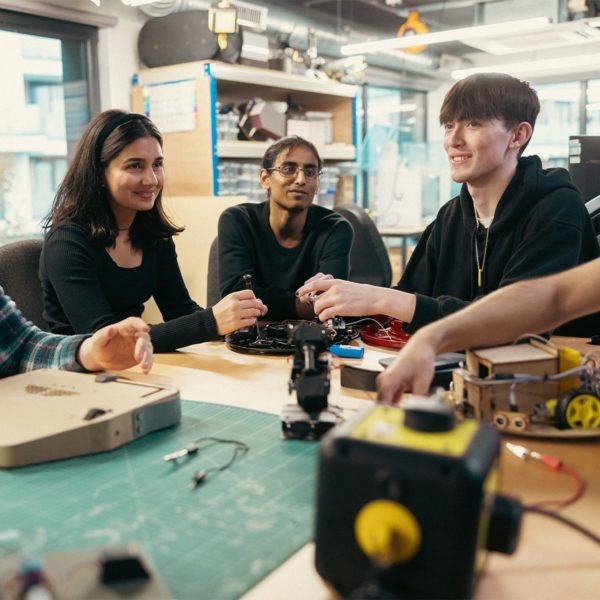
How will I learn?
TEDI-London’s approach to learning is highly practical and project-based. We focus on practical, project-based learning without traditional lectures.
TEDI-London’s campus at Canada Water in South-East London features purpose-built Makerspaces designed to foster creativity and collaboration. These spaces are equipped with everything needed for hands-on learning, from small prototyping and 3D printing to large-scale equipment. The Makerspaces are integral to the project-based learning approach at TEDI-London, allowing you to develop your ideas and grow your engineering skills.
You’ll be treated as a professional in training and will work on real-life challenges co-designed and co-delivered with employers. This hands-on approach ensures that students gain practical experience and industry-ready skills from day one, preparing you for placements and future careers in engineering.
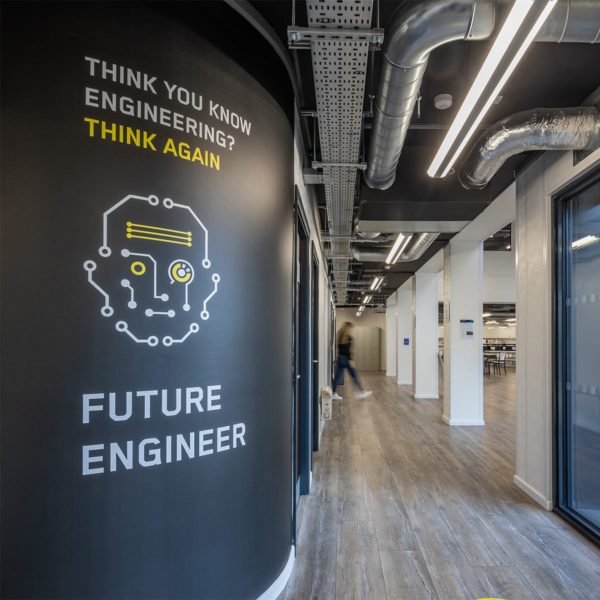
Assessment method
To ensure you are progressing, we use a range of assessments designed to evaluate your practical and theoretical understanding. Our assessment approach is inclusive, appropriate and effective in allowing you to demonstrate success.
Typical assessment methods include a mixture of group project reports, individual reports, pitches, presentations, demonstrations, short videos, and posters. This diverse range of assessment methods ensures that you demonstrate your understanding and skills in multiple ways, catering to different learning styles and preferences, as well as mirroring desirable, professional employability skills.
Working with industry
Collaborating with industry throughout your studies is core to the TEDI-London experience. The programme is designed to be industry-focused, ensuring that you are not only learning theoretical concepts but also applying them in real-world scenarios.
TEDI-London emphasises regular industry interaction as part of its project-based learning approach. You’ll engage with industry experts in a professional capacity from the very start of your programme. This includes meeting industry professionals during projects and masterclasses, which allows you to build your professional network and gain insights into various sectors. Many projects will involve working in small teams to deliver solutions to real client partners, managing the project from end-to-end, including research, design ideation, prototyping, and presenting the solution.
This hands-on approach ensures you gain practical experience and develop vital skills like collaboration, communication, project management, and commercial awareness, making you well-prepared for the workplace.
Entry requirements
The following criteria is intended as a guide to help you gauge if TEDI-London is for you:
- If studying A Levels, IB, BTEC (or any post 16 education) you’ll be on track for approximately 112-120 UCAS points or equivalent
- GCSE Maths grade C/4 (or equivalent Level 2 qualification)
- You may be invited to an online interview
No Maths A-Level? No problem
We are not saying maths isn’t important to study engineering – it is! However, we don’t see a Maths Level 3 qualification as essential to studying with us and becoming an incredible future engineer. Alongside all the other engineering skills that you’ll develop, we’ll support you throughout your maths journey with us, and it’ll become yet another tool to help you change the world for the better.
After you graduate
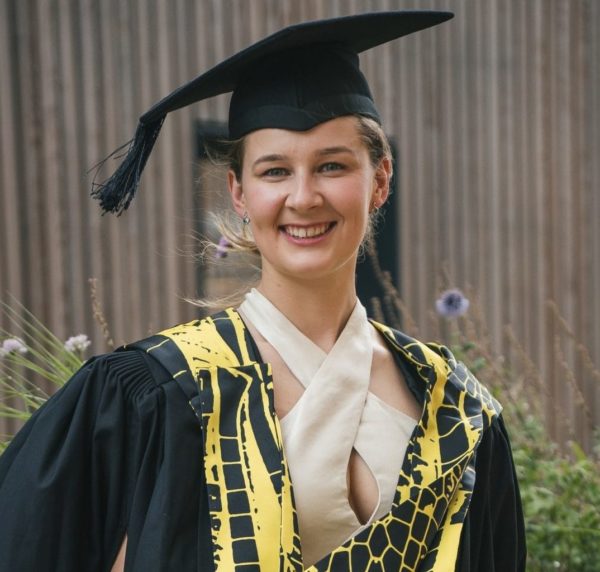
As a graduate from Engineering with Artificial Intelligence, you’ll be well-equipped with a unique blend of core engineering principles and advanced AI skills, making you highly sought after in various industries. Graduates could pursue roles in rapidly evolving sectors such as renewable energy, robotics, healthcare, and smart infrastructure. You’ll have the opportunity to pursue a range of jobs and further study options.
Potential careers available to graduates:
- AI Engineer
- Data Scientist
- Machine Learning Engineer
- Robotics Engineer
- Systems Engineer
- Software Developer
- Big Data Analyst
Graduates may choose to further their education by pursuing advanced degrees such as a Master’s or PhD in related fields. You can also consider specialised certifications or professional development courses to enhance your expertise in specific areas of AI and engineering.
If global experience and a master’s is up your street, head to Arizona State University to study a Master of Science at the Ira A. Fulton Schools of Engineering.



